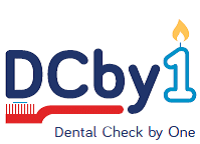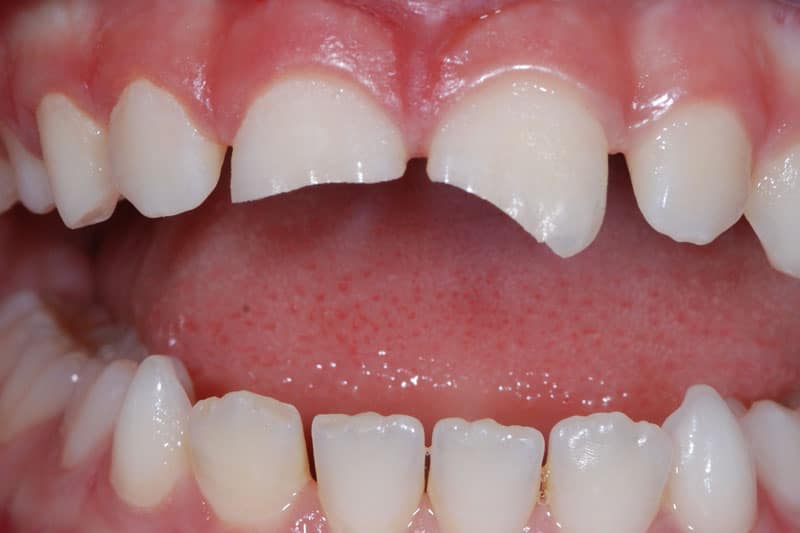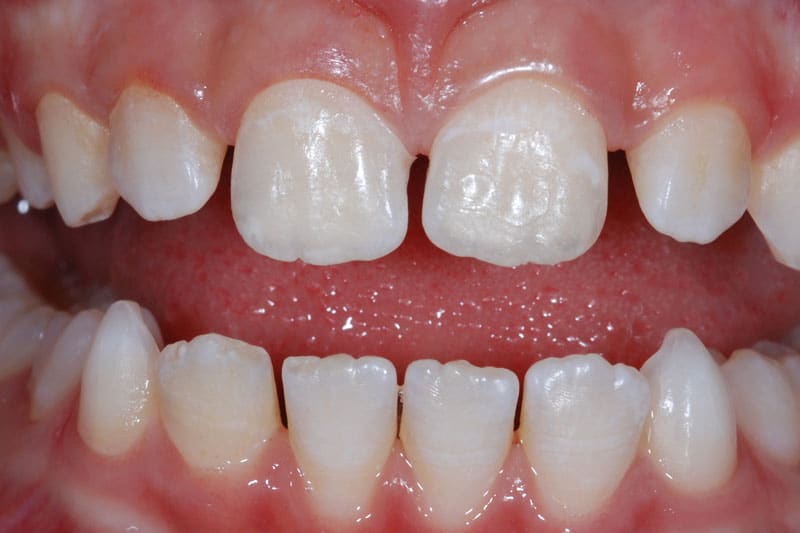Paediatric Dental Specialists
Dentistry to build confidence in your child
Our paediatric dental specialists have advanced training and extensive experience in children’s dentistry, providing gentle, comprehensive dental care specifically designed for young patients. We understand that visiting the dentist can be overwhelming for children, which is why our specialist paediatric dentists take the time needed to help your child feel comfortable, relaxed, and confident during every appointment.
At Dawood and Tanner, our children’s dental specialists combine clinical excellence with a compassionate approach, delivering the highest quality paediatric dental treatment with precision and exceptional care. Our team’s advanced expertise in paediatric oral health ensures your child receives sophisticated, age-appropriate treatment in a refined, welcoming environment.
Your child’s first dental experiences are crucial for establishing lifelong oral health habits. We focus on creating positive associations with dental care, helping children understand the importance of maintaining healthy teeth and gums while building confidence for future dental visits. Our gentle approach to children’s oral health sets the foundation for a lifetime of healthy smiles.


Helping Children Feel Calm and Cared For
- We help your child feel relaxed in a dental practice through empathy and reassurance
- We support anxious children with clear explanations and gentle, specialist care
- Our onsite 3D technology makes treatment faster, easier, and more comfortable
- All dental specialists available in one place—no need for referrals
Caring for your baby’s teeth
First dental appointment

Your baby will develop 20 primary teeth (baby teeth), which typically begin to emerge from around 6 months of age, though timing can vary considerably between children. Occasionally, teeth may be present at birth (natal teeth) or appear shortly after birth (neonatal teeth), occurring in fewer than 1% of babies and generally not a cause for concern. Our paediatric dental specialists can assess whether any intervention is necessary.
Early dental care is essential for your child’s oral health development. The UK-wide Dental Check by One campaign, launched by the British Society of Paediatric Dentistry (BSPD) in partnership with the Office of the Chief Dental Officer England, aims to ensure more children receive professional dental care between birth and age two. This initiative emphasises the importance of establishing oral health habits from the very beginning of your child’s life.

Your child's emerging adult teeth
Mixed dentition
As your child grows, we monitor the growth and development of the face, and advise on prevention and diet. If good habits have been instilled along with excellent supervised mouth care at home and regular visits to the hygienist, then most dental diseases are avoidable.
If your child develops more complex dental issues, our paediatric dental specialists in collaboration with our extended multidisciplinary team will be able to provide specialist treatment including orthodontics, root canal treatment, implant replacement for congenitally missing teeth, and the surgical removal of buried teeth – all aided by our therapists, hygienists and advanced technological resources.
If your child is anxious about visiting the dentist, you can be assured that we endeavour to make our young patients relaxed and happy to receive treatment by offering kind and gentle treatment. We can use local anaesthetic alone, or when necessary, supplement it with relative analgesia as provided by our fully trained specialist paediatric dentist and assistant.

Permanent teeth

Accidents, sugar and habits
It can be heartbreaking to see one of your child’s permanent teeth damaged or broken, but If your child has an accident we are able to easily reattach it. If there is more extensive damage we have the means within our practice to restore your child’s teeth so they can last for a lifetime.


As your child becomes a teenager their self-awareness, independence and control of their own diet increases. This often means an increase in snacking and sugary drinks, and we find that tooth decay appears more often, especially around the ages of 11-13.
We support you and your child as they transition into adults by helping them understand the damage that casual consumption of sugar can have on their teeth and health. This information can help them to take control of the care for their teeth and themselves.
We see some teenagers who present with significant concerns regarding their appearance; teased at school or refusing to smile. We take care to give them the correct dental treatments to improve their appearance conservatively, without causing harm to their natural teeth, as we have a duty of care to provide the best possible treatment for this deserving group of patients while protecting their dentitions from unnecessary harm.
FAQ's – Children's Dentistry
We recommend following the Dental Check by One campaign guidelines, which advise that children should have their first dental visit by age one or within six months of their first tooth appearing. Early dental visits help establish positive associations with dental care and allow our paediatric dental specialists to monitor your child’s oral development from the very beginning. These early appointments focus on prevention, education, and creating a comfortable foundation for lifelong dental health.
As a multidisciplinary specialist practice we offer comprehensive care under one roof. Our paediatric dental specialists work alongside orthodontists, oral surgeons, and other specialists, ensuring your child receives coordinated, expert care without the need for multiple referrals. We combine advanced technology, including 3D printing and state-of-the-art facilities, with a gentle, child-focused approach that prioritises comfort and confidence-building.
Our paediatric dental specialists are trained in child psychology and behaviour management techniques specifically for dental settings. We create a calming environment and take the time needed for each child to feel secure. When necessary, we can use relative analgesia (happy gas) administered by our fully trained specialists to help particularly anxious children relax. Every treatment is tailored to your child’s individual needs and comfort level.
Your baby’s first visit focuses on preventive care and education. Our paediatric specialist will gently examine your baby’s mouth, discuss teething, proper oral hygiene techniques, and address any concerns about feeding or thumb-sucking habits.
We’ll also check for any early signs of dental issues and provide guidance on caring for emerging teeth. The appointment is designed to be positive and educational for both you and your child.
Yes, we provide emergency dental care for children and are experienced in treating dental trauma. If your child has an accident involving their teeth, we can often re-attach or restore damaged teeth using our advanced in-house facilities. For permanent teeth, we have the expertise and technology to provide long-lasting restorations. We recommend contacting us immediately after any dental injury for the best treatment outcomes.
Yes, we do! As a multidisciplinary practice, we have specialist orthodontists working alongside our paediatric dentists. This means we can monitor your child’s dental development and intervene at the optimal time if orthodontic treatment is needed. Having all specialists under one roof ensures seamless communication and coordinated treatment planning for the best possible outcomes.
Our paediatric dental specialists are trained to perform complex procedures including root canal treatments, surgical removal of impacted teeth, and treatment for congenitally missing teeth.
We work collaboratively with our multidisciplinary team, including oral surgeons and prosthodontists, to provide comprehensive care. Our advanced technology and gentle approach ensure even complex treatments are as comfortable as possible for young patients.
Our paediatric dental specialists care for children from infancy through adolescence, typically up to age 16-18. We understand the unique dental needs at each developmental stage, from caring for baby teeth to managing the transition to permanent teeth, and addressing teenage concerns about appearance and oral health independence.
We typically recommend six-monthly check-ups for most children, though some may need more frequent visits depending on their individual risk factors. Regular visits allow us to monitor development, prevent problems, and maintain the positive relationship your child has with dental care. Our hygienists also play a crucial role in maintaining your child’s oral health between specialist appointments.
Baby teeth usually begin emerging around 6 months of age, though this can vary significantly between children. The first teeth to appear are typically the lower front teeth, followed by the upper front teeth. By age three, most children have all 20 primary teeth. Occasionally, some babies are born with teeth (natal teeth) or develop them within the first month (neonatal teeth), which occurs in fewer than 1% of babies and is generally not a cause for concern.
Before teeth emerge, gently wipe your baby’s gums with a clean, damp cloth after feeding. Once the first tooth appears, use a soft-bristled infant toothbrush with a tiny smear of fluoride toothpaste (no bigger than a grain of rice). For children aged 3-6, use a pea-sized amount of fluoride toothpaste. Always supervise brushing until your child can reliably spit out toothpaste, usually around age 6-8.
Thumb sucking and dummy use are normal comfort behaviours for babies and toddlers. Most children naturally stop these habits between ages 2-4. If the habit continues beyond age 4-5, when permanent teeth begin to emerge, it may affect tooth alignment and jaw development. Our paediatric specialists can provide guidance on gentle techniques to help your child transition away from these habits when appropriate.
For permanent teeth, time is critical. Handle the tooth by the crown (not the root), gently rinse if dirty, and try to reinsert it into the socket if possible. If you can’t reinsert it, keep the tooth moist in milk or saliva and seek emergency dental care immediately. For baby teeth that are knocked out, do not attempt to reinsert them as this could damage the developing permanent tooth underneath. Contact our practice for guidance in either case.
Children typically begin losing baby teeth around age 6-7, starting with the lower front teeth. This process continues until around age 12-13 when most children have all their permanent teeth (except wisdom teeth). The timing can vary considerably between children. If your child loses teeth much earlier or later than this timeframe, our specialists can assess whether this is within normal variation.
It’s not just the amount of sugar, but the frequency of sugar consumption that matters most for dental health. Frequent snacking on sugary foods or sipping sugary drinks throughout the day creates constant acid attacks on teeth. We recommend limiting sugary treats to mealtimes when possible, choosing water between meals, and ensuring good oral hygiene. Our specialists can provide personalised dietary advice based on your child’s individual risk factors.
Mouthwash is generally not necessary for young children and can be harmful if swallowed. Most children under 6 cannot reliably spit out mouthwash. Good brushing with fluoride toothpaste and regular dental visits are usually sufficient. For older children and teenagers, therapeutic mouthwashes may be beneficial in certain circumstances, which our specialists can advise on during consultations.
Dental sealants are protective plastic coatings applied to the chewing surfaces of back teeth to prevent decay. They’re particularly beneficial for children who have deep grooves in their molars that are difficult to clean. Our paediatric specialists will assess whether your child would benefit from sealants based on their individual cavity risk and tooth anatomy.
